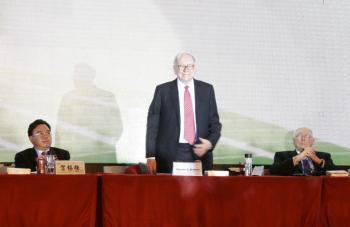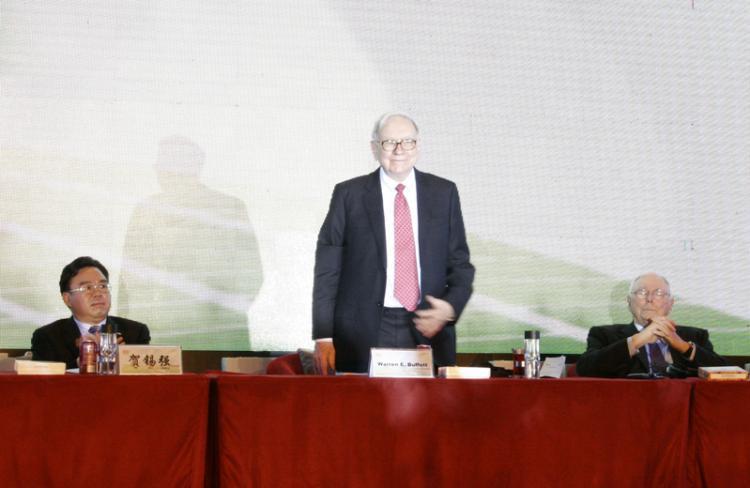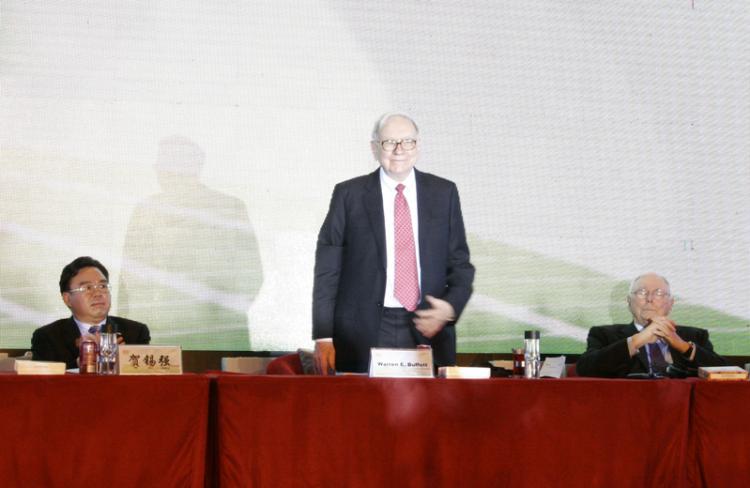Warren Buffett Acts as Buffer for Former June 4 Student Leader
For the first time, a wanted student leader of the June 4th movement was permitted to travel openly to China—under the wings of billionaire investor Warren Buffett.

On Sept. 27, 2010, Warren Buffett appears at BYD Auto's annual business meeting in Shenzhen. Epoch Times Archive
|Updated:



